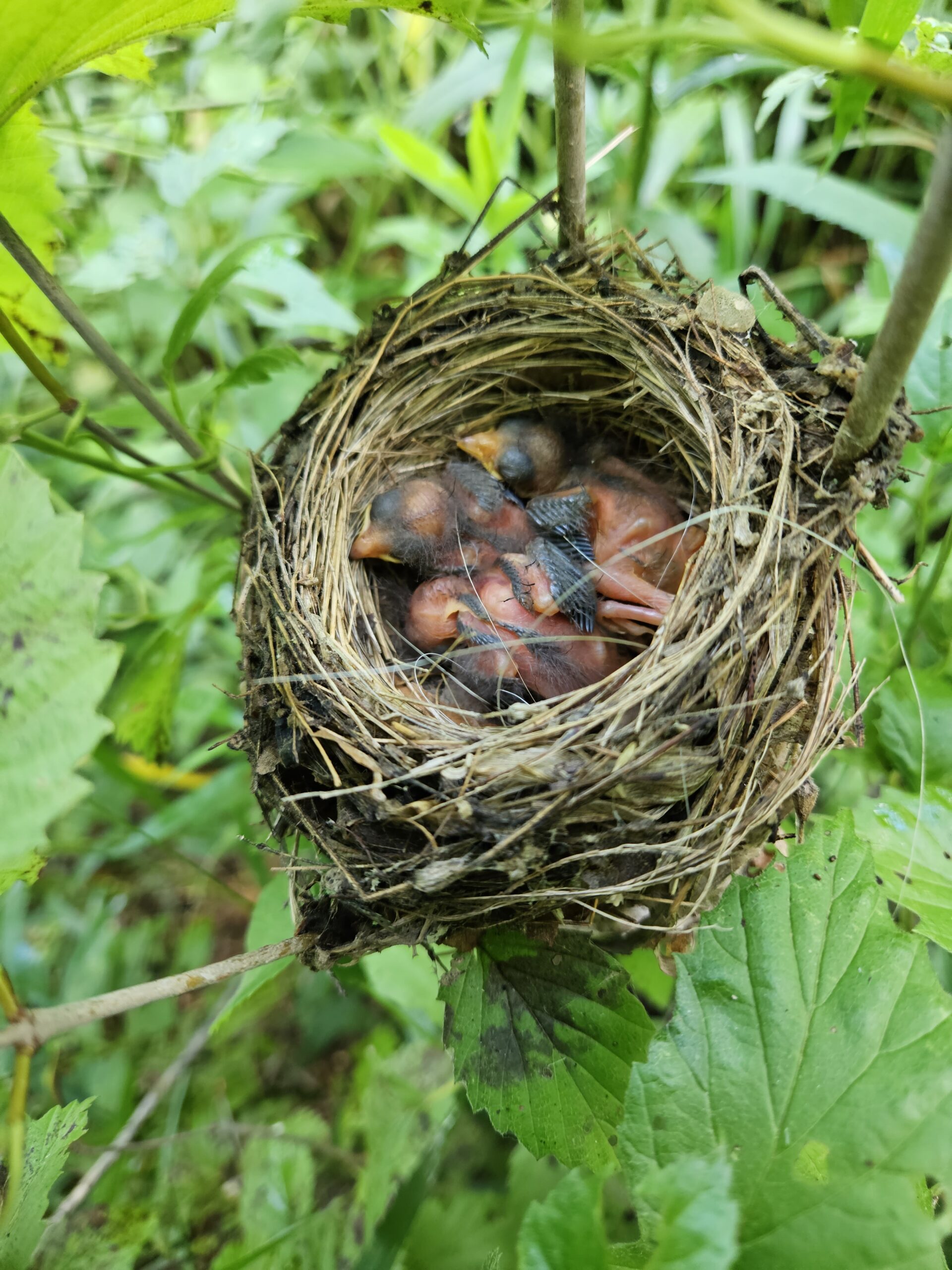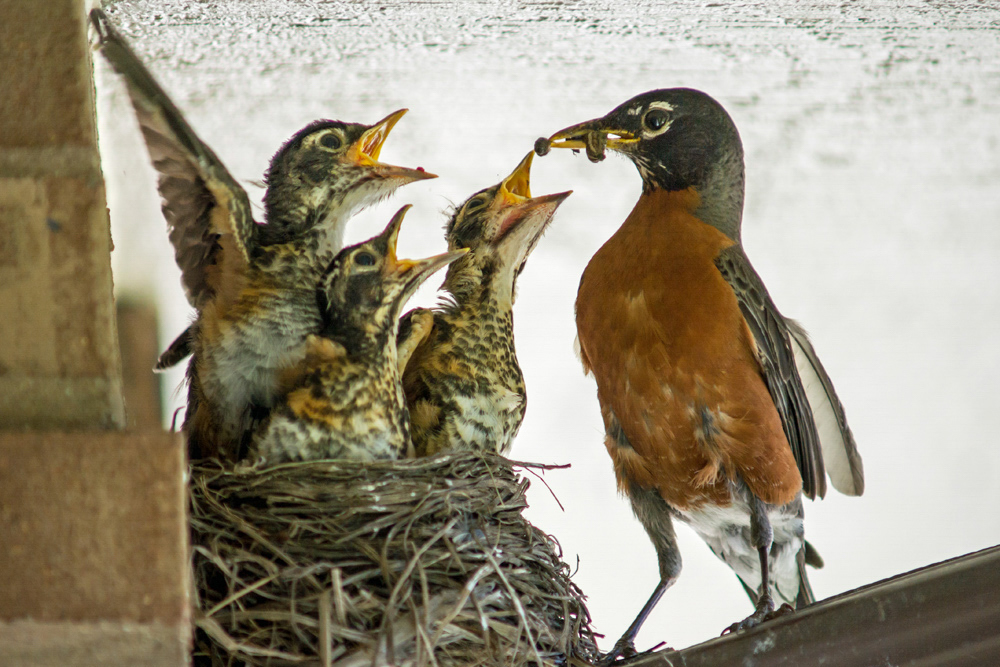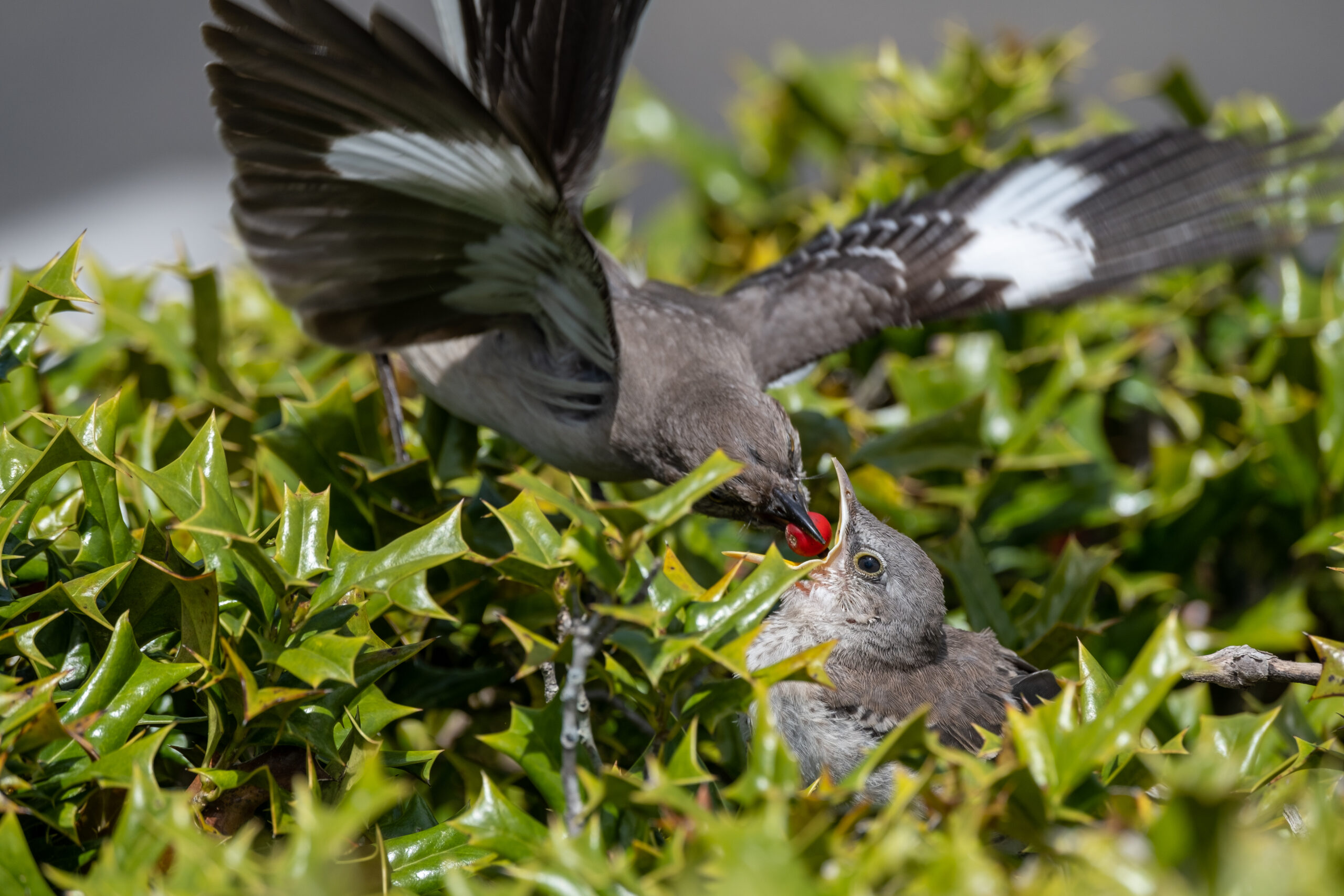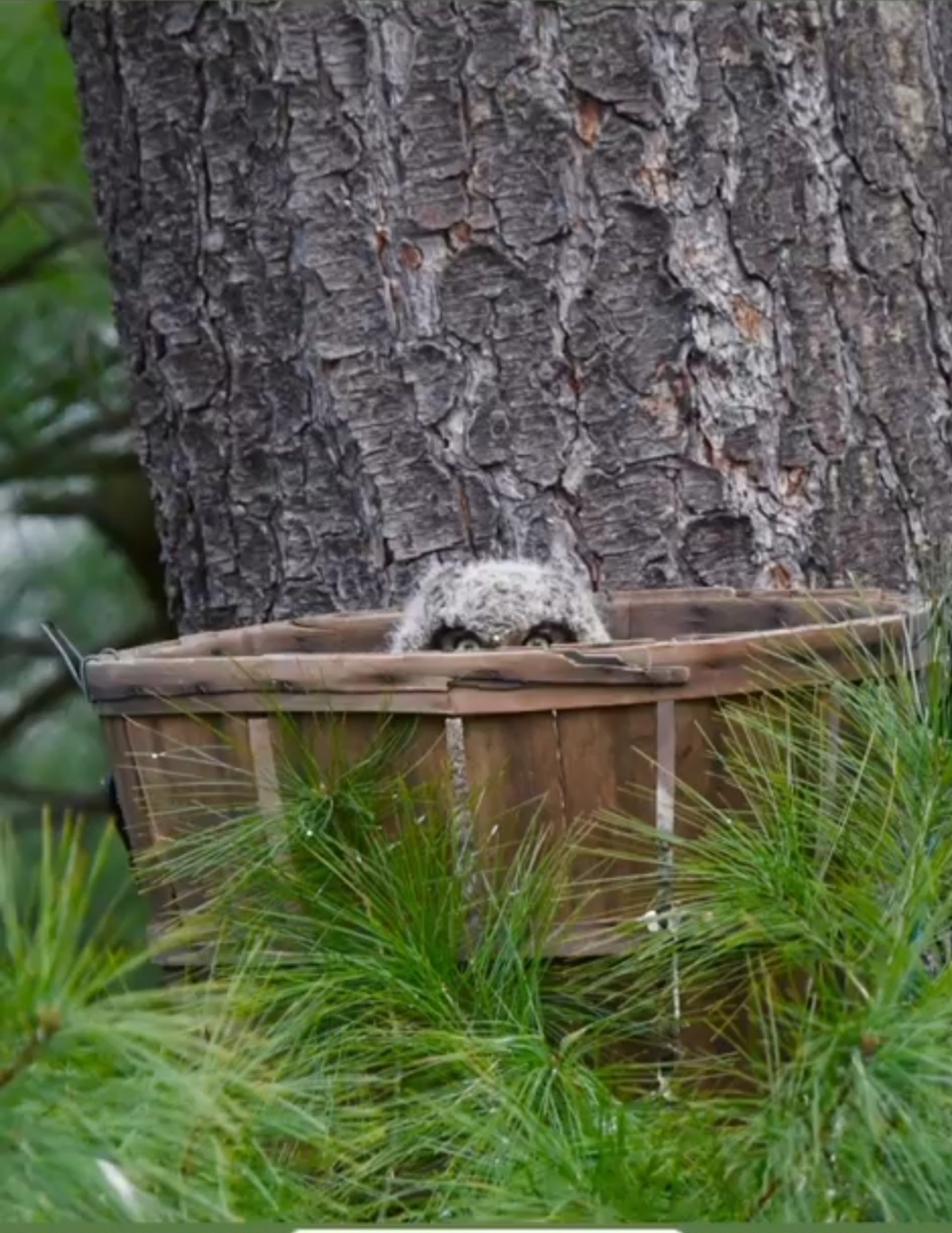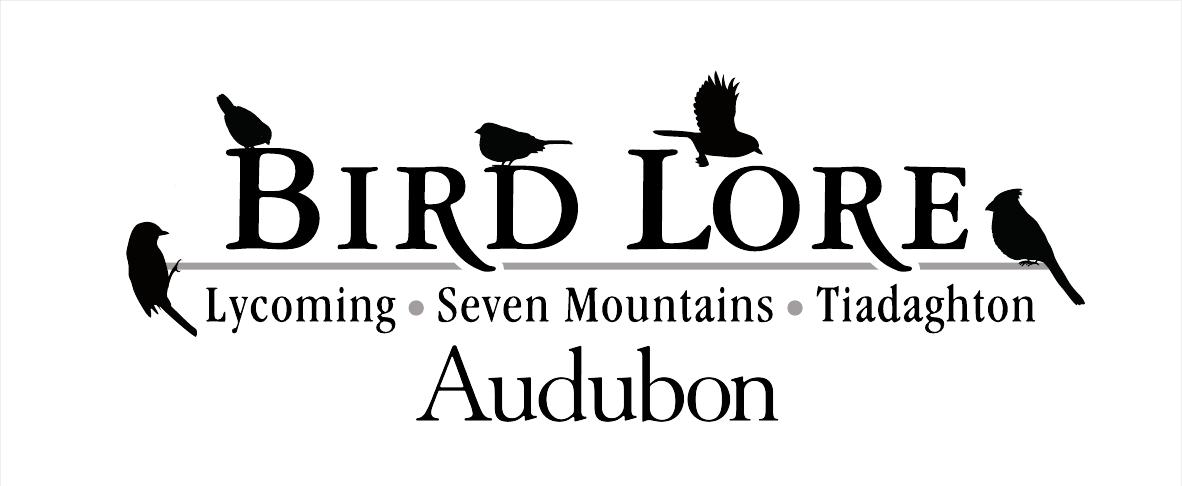Spring has arrived, with its joyous symphony of birdsong, spectacular migrations, and feverish nest building. Soon a new generation of baby birds will hatch. If all goes well, by summer’s end these new birds will be ready to join their parents on the next cycle of migration or preparations to survive the winter locally. But sometimes young birds end up on the ground or caught by domestic pets. What should humans do (or not do!) when this happens?
The U.S. Department of the Interior Fish and Wildlife Service laws, PA Game Commission regulations, and the Migratory Bird Act of 1972 all make it illegal for unlicensed persons to possess wildlife. However, if you encounter an injured or sick animal, the Good Samaritan Act in PA will allow you to get the animal to a wildlife rehabilitator or to the PA Game Commission.
Image: Newly- hatched Indigo buntings. Photo by Kay Cramer, 2023.
Always contact a wildlife rehabilitation center or the PA Game Commission for instructions before handling wildlife. Wear latex gloves to protect you and the bird. Never offer an injured or sick bird food or water. Rehabilitators often find food and water in baby birds’ lungs from well-meaning citizens, and these birds usually don’t survive.
Nestlings are small and have very few or no feathers, they can’t yet hop, and they move by dragging themselves with their wings. Fledglings have feathers and down, can hop, and it’s normal for them to spend some time on branches, in bushes, or on the ground while they are learning to fly.
Image: Fully-feathered robin nestlings. Dori Eldridge, Audubon photo award 2013.
If you find a grounded nestling that is alert and gaping (opening its mouth for food), look around for its nest. If you can reach the nest safely, put latex gloves on and put the nestling back in. Most birds have a very poor sense of smell, so the parents will not abandon the nestling if you touch it. If you can’t find the nest or it’s out of reach, make a nest substitute using a small wicker basket or wood lath berry bin. Line it with a soft bit of T shirt or some dry grass or straw. Attach the substitute nest to a tree close to where you found the bird, as high up as you can. Then watch to see if the parents visit the nestling. If you don’t see them within an hour, call a wildlife rehabilitator. If a nestling is cold or is not gaping, is obviously injured, or has been handled by a cat or dog, warm it briefly by holding in your gloved hand, and contact a rehabilitator ASAP. Cats and dogs have pathogens in their saliva that require immediate treatment of any animal they bite.
Healthy fledglings on the ground usually have parents nearby. If the animal is in a location not at risk from human traffic, cats, dogs, or other predators, leave it alone and observe it from a distance. If it is in a risky place, put the bird into a bush off the ground, out of reach of predators.
Image: Fledgling mockingbird being fed by parent after leaving the nest. Paul Lisker, Audubon photo award 2022.
If a baby bird (nestling or fledgling) is wounded or appears ill, call an animal rehabber, wildlife agency, or veterinarian before you try to touch or move it. If it’s outside working hours, prepare a closed box with air holes and a soft cloth or paper towels for bedding, then don latex gloves and put the baby inside, in a safe and warm location indoors away from pets and people. Do not pet the baby, peek at it, or offer it food or water. Young animals fed by humans can become imprinted, and then they don’t learn how to be a bird. Also, some types of medical care require that the baby abstain from eating or drinking.
I volunteer at the Centre Wildlife Care facility near State College. Many of the baby birds people bring in each spring are perfectly healthy, and don’t need the intervention of a rehabber. These animals are victims of kidnapping by humans. We can help these birds to survive, but away from their parents, they don’t learn the proper songs that they will need to attract or respond to a mate later in life.
Before you try to “help” a baby bird, please call one of the resources below—don’t become a kidnapper!
Image: Great horned owl fledgling re-nested successfully. John Kennedy, Raptor Trust, 2023.
Clip this and keep it on your fridge or in your car for handy reference. Wildlife rehabilitator and Game Commission contact information:
Centre Wildlife Care in Port Matilda – centerwildlifecare.org, phone 814-692-0004
Other wildlife rehabilitators in PA – www.pawr.com
Other wildlife rehabilitators in the US – www.ahnow.org
For help with animal capture and transport – Wildlife in Need (WIN), 814-414-4224
PA Game Commission Centralized Dispatch Center – 1-833-742-9453 or 1-833-742-4868
About the author, Dr. Mary E. Morrison:
Dr. Morrison has been teaching and doing research at Lycoming College since 2004 in the Biology Department, and also founded the Neuroscience Program at Lycoming. She is an avid birder and a member of Lycoming Audubon Society.
About BIRD LORE:
BIRD LORE is produced by the Lycoming Audubon Society (serving Lycoming and Clinton Counties), Seven Mountains Audubon (serving Union, Snyder, Northumberland and Columbia Counties) and Tiadaghton Audubon Society (serving Tioga and Potter Counties). Information about these National Audubon Society chapters can be found at lycomingaudubon.blogspot.com and sevenmountainsaudubon.org and tiadaghtonaudubon.blogspot.com.



